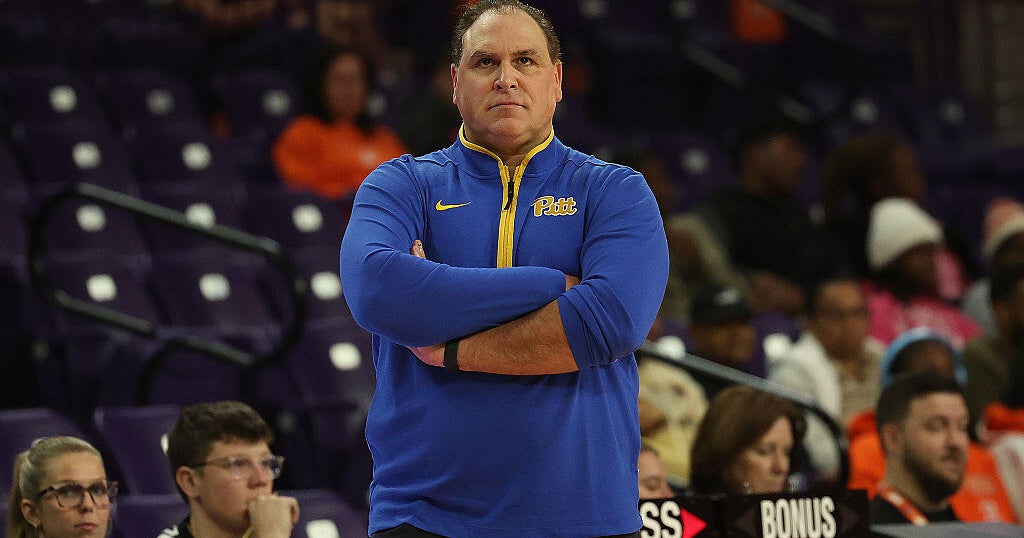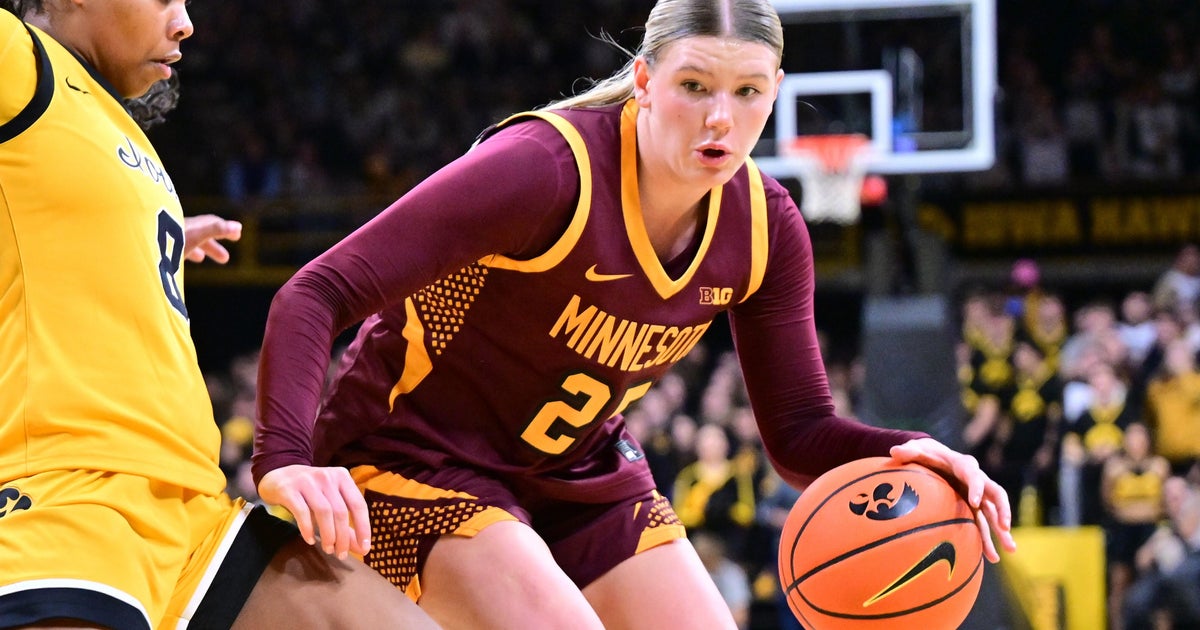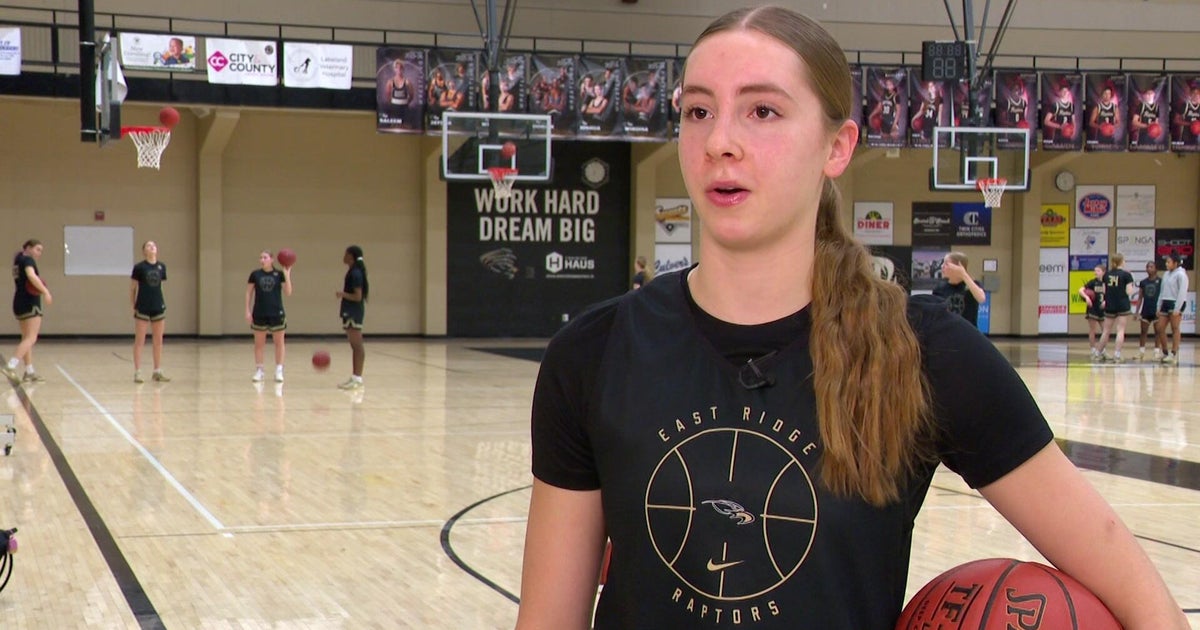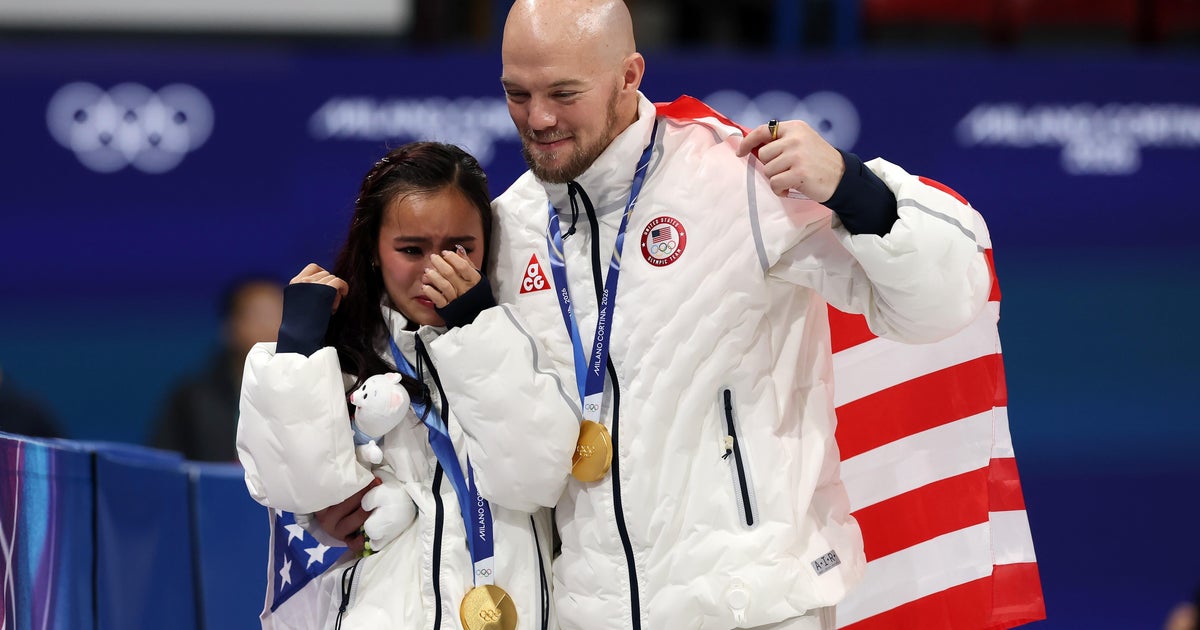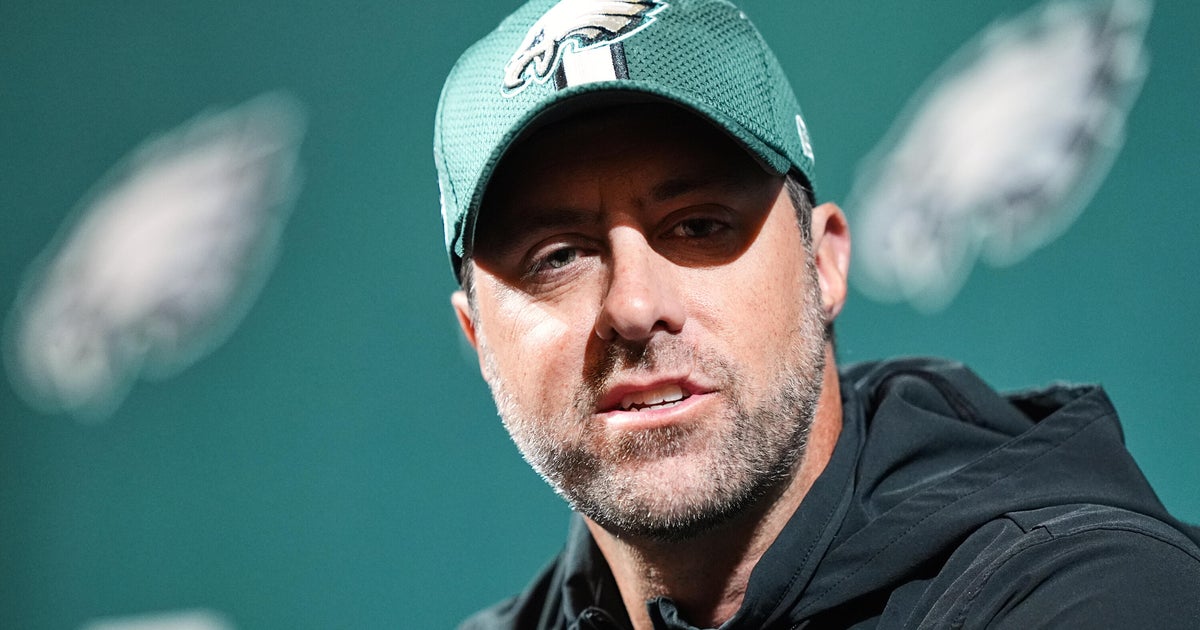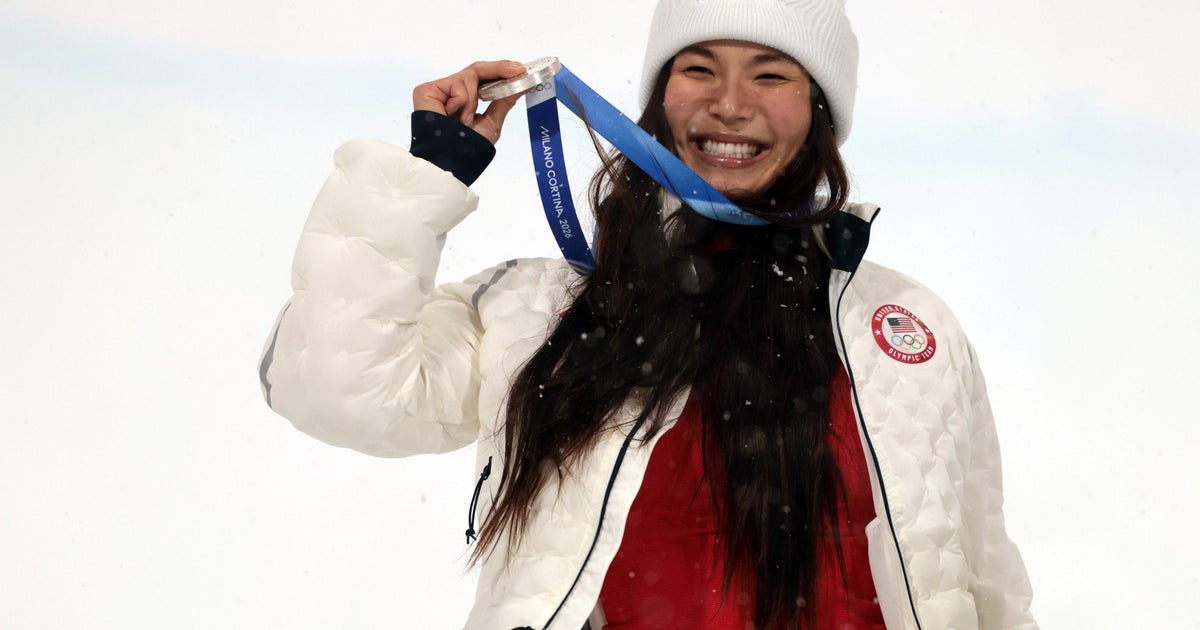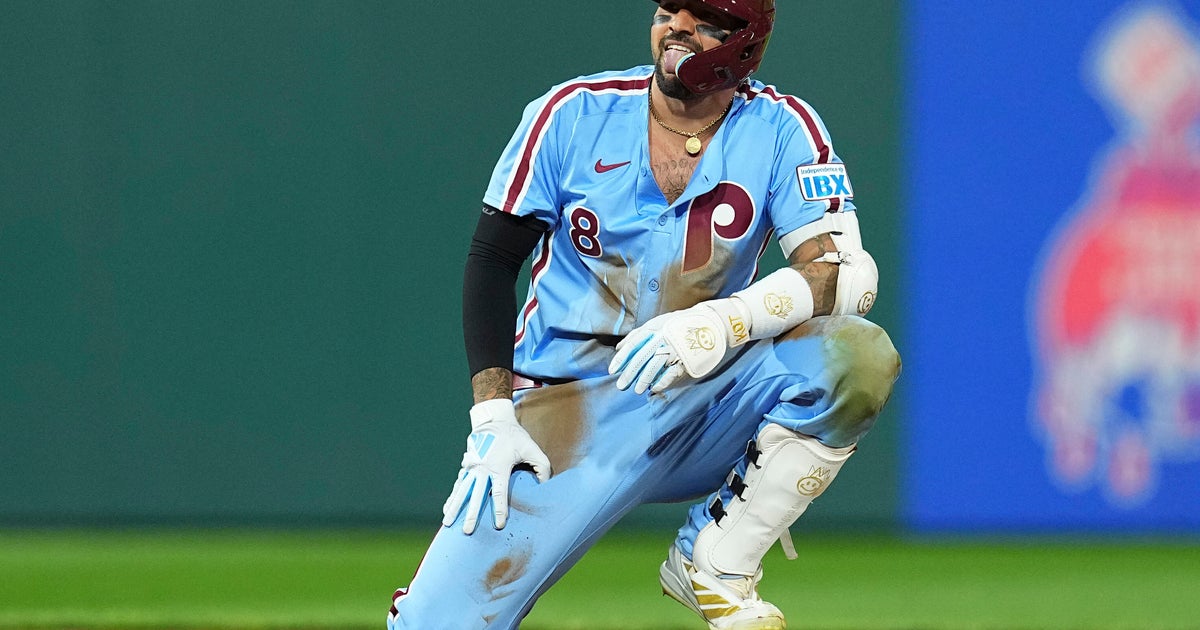NCAA Troubles Have Critics Seeking Changes At top
INDIANAPOLIS (AP) — In an Aug. 10 story about the struggles the NCAA has been facing, The Associated Press misidentified Gerald Gurney's title. He is a former senior associate athletic director for academics at Oklahoma.
A corrected version of the story is below:
NCAA troubles have critics seeking changes at top
Constant barrage of problems has NCAA critics taking more shots at Emmert's leadership
INDIANAPOLIS (AP) — NCAA President Mark Emmert has spent 2½ years trying to push through historic reforms and get tougher on cheaters.
It's only created more problems.
Today, Emmert presides over an organization that is struggling to maintain credibility with the public, is tied up in multiple court cases and is tainted by an embarrassing internal scandal. He has been criticized for his governing style and personality. There have been questions surrounding the work he did in previous jobs and whether he overstepped his authority in punishing Penn State for the Jerry Sandusky scandal. He drew fire for pinning blame for the debacle in the Miami investigation on enforcement officials and some question whether he should lead the NCAA through its next major overhaul — fixing the governance structure.
Critics contend there is only way to only one way to restore the NCAA's tattered image: Find a new president.
"He should have been gone yesterday, as far as I'm concerned," said Gerald Gurney, a former senior associate athletic director for academics at Oklahoma and a former compliance director at Maryland. "He's absolutely unable to get anything through the NCAA system. Every time one of his proposals is voted down, that's like a vote of no confidence. If he can't get his ideas across to membership, he ought to leave."
Emmert has ignored the growing calls for his resignation and he doesn't sound like a man planning to leave any time soon.
In February, the board of directors gave the embattled president an unusual public vote of confidence. A few days later, NCAA executive committee chairwoman Lou Anna Simon, Michigan State's president, offered her personal backing. Emmert took those moves as an endorsement of his agenda, so that's been his primary concern over the last 5½ months.
"I've certainly not considered resigning and I've always felt that I had the good, strong support of my board and my executive committee. As long as we continue to make progress on behalf of student-athletes, then I want to be part of that," Emmert told The Associated Press. "Have I done things in ways that were inappropriate or frustrated people by mistakes I have made? Of course. But that doesn't mean that I'm going to stop doing these things. That's not the way I operate."
The public perception is that Emmert is in charge of a college sports world spinning out of control while the governing body tries to dig out from one of the bleakest 13-month spans in its history.
There were the salacious scandals at Penn State and Miami, reports of academic fraud at Auburn and North Carolina and now charges that Heisman Trophy winner Johnny Manziel violated NCAA rules by selling autographs. The Miami case was particularly damaging — with the NCAA afoul of its own guidelines in investigating Nevin Shapiro's allegations, many fans started asking if anybody could play by the rules?
Emmert's push for speedy reforms has also been dramatically slowed.
The optional four-year scholarship he supported barely survived an override vote last year. The Emmert-backed $2,000 stipend did not. An override petition in December 2011 ended the opportunity to give athletes money above and beyond the cost of tuition, room and board, books and fees. Emmert has repeatedly said there would be a new proposal, though none has been offered. The rule-book rewrite hasn't gone as quickly or been quite as far-reaching as hoped, either.
Meanwhile, a group of current and former athletes led by Ed O'Bannon is suing the NCAA for allowing their images and likenesses to be used in a video game. If the athletes win, the amateurism rules policing college sports may never be the same. Another federal lawsuit accuses the NCAA of being lax in establishing clear policies regarding concussions.
Legal observers believe the NCAA could lose either case or both with payouts potentially costing millions.
"I think what the O'Bannon case does is highlight an issue fans have known about for a long time but haven't really focused on. These athletes make a lot of money for their universities and why aren't they getting more of it?" said Michael McCann, director of the Sports and Law Institute at the University of New Hampshire. "I think the concussion case is more threatening to the NCAA than the NFL because the NFL can say the players agreed to it. The NCAA has no union."
The combination has created a perfect, but not unprecedented, storm.
In the 1980s, the NCAA lost control of regular-season college football television rights in court, and while the NCAA eventually won its legal battle against coach Jerry Tarkanian, it still wound up paying him $2.5 million a decade later to settle a harassment suit. Proposal 48 spurred complaints that minority students would be hit harder because of the new, tougher academic requirements. Sports agents Norby Walters and Lloyd Bloom faced criminal indictments after signing dozens of athletes to contracts before their college eligibility expired. Basketball programs at Kentucky and North Carolina State were barred from the NCAA tourney because of rules violations and, of course, the SMU football program received the "death penalty."
Some wondered — and still do — whether big schools or conferences will break away from the NCAA. The most powerful conference commissioners have recently been among the most vocal proponents for change.
Emmert, of course, is an easy target because he's the leader of an organization many college fans don't understand and distrust.
But the former University of Washington president hasn't helped himself, either.
Over the past few months, the public has seen Emmert spar with reporters in Atlanta and watched enforcement department officials leave en masse because of what some describe as low morale inside NCAA headquarters. Gurney, who is affiliated with the NCAA-watchdog The Drake Group, complains Emmert is "smug" and "not particularly inclusive" in seeking advice even as NCAA executives open discussions on changing governance rules.
A longer, more detailed debate is expected to take place during the national convention in January.
"It isn't about what I think or anyone thinks, it's about how we can reach a consensus," Simon said. "The commissioners of the big conferences have made their position clear. The challenge is, can we use our current structure to include Division II and III and accommodate some of the concerns being expressed?"
Jo Potuto, a Nebraska law professor and former infractions committee chairwoman, said the Division I landscape is now too big to find common ground, making it almost impossible for anyone to govern.
"When you have schools whose entire budget is one-eighth or one-tenth of the budget at the University of Texas, you have too big a discrepancy to get anything done," she said. "Look, they (the big-budget schools) have got advantages that are going to be there, and knitting at the periphery about — how often you recruit someone or how often you make phone calls — doesn't make any difference. They're not going to be able to compete against Ohio State or Alabama."
Potuto contends that the continual problems are more the result of where the college sports world is today rather than a reflection of Emmert's leadership.
Gurney disagreed and then cited the Penn State sanctions, claiming Emmert misused his executive authority that was intended solely for policy matters.
Traditional NCAA supporters have joined the chorus, too. Though former NCAA vice president David Swank, a law professor at Oklahoma, understands Emmert's desire to act swiftly in the Jerry Sandusky matter, he believes Emmert overreached.
"It was completely outside the rules of the NCAA," Swank said. "The school dropped the ball on a lot of things, but the question of NCAA infractions, there is a procedure to go through and it was not used."
Whatever the complaints, it's increasingly clear they are not going away — and neither is Emmert.
"It's difficult to have everyone maintain their wonderful enthusiasm when they open the paper and there's a constant barrage of criticism," Emmert said. "But let me tell you a story. We came in (Aug. 1), at 7:30 a.m. and all of the Division I Student-Athlete Advisory Council (SAAC) was in town. They lined up and cheered everyone that walked through the door. It's a reminder that we're here to do the work for these kids and that someone out there being critical doesn't really matter."
___
AP Sports Writer Larry Lage in Detroit also contributed to this report.
(© Copyright 2013 The Associated Press. All Rights Reserved. This material may not be published, broadcast, rewritten or redistributed.)
